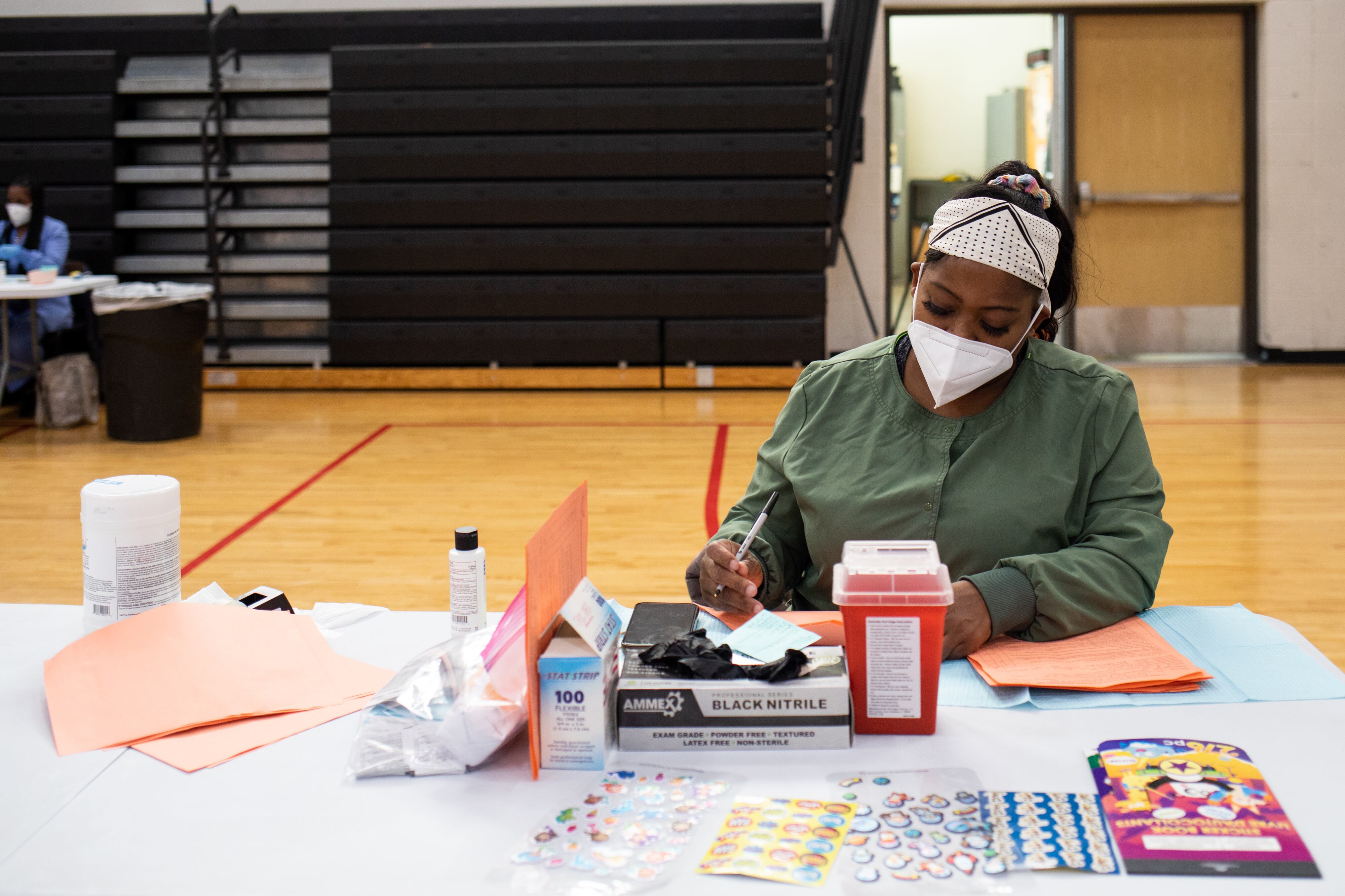A spike in coronavirus cases is again causing upheaval for Michigan’s K-12 schools, yet many districts aren’t using all of the tools at their disposal to prevent the virus from spreading.
In the absence of guidance from the state, only a few of Michigan’s more than 800 school districts require staff to get vaccinated against COVID or to take regular tests. Individual districts are allowed to implement such requirements even though a similar mandate from the Biden administration was blocked by the U.S. Supreme Court today.
Vaccines and testing reduce the spread of COVID, which is disrupting student learning and families’ lives. Numerous Michigan districts are operating remotely in the first part of January, in part because many staff members are falling ill and replacements are in short supply.
The Biden administration’s vaccine-or-test requirement for workplaces with at least 100 employees — a category that includes school districts in 26 states — was among the federal government’s most sweeping attempts to reduce the spread of COVID. With the mandate blocked by the U.S. Supreme Court, implementing such mandates will be left to individual states and districts, continuing a pattern of local decision-making that has defined much of the U.S. response to COVID.
Experts say vaccine requirements for staff can help districts reduce disruptive outbreaks. They are “a very important tool, especially now,” said Sarah Reckhow, a professor of political science at Michigan State University who studies education and COVID.
Only the city districts in Lansing and Detroit have implemented such requirements so far. East Lansing will do so this month, its superintendent said in an email to families.
Nikolai Vitti, superintendent of the Detroit Public Schools Community District, said the district’s vaccine-or-test requirement for staff would remain in place despite a decision today from the Supreme Court preventing the Biden administration from enforcing a similar rule for all U.S. companies, including school districts, with at least 100 employees. Detroit is requiring all employees to get vaccinated, without the option of testing, in February.
Hundreds of districts across Michigan are using other COVID mitigation methods, such as requiring masks and offering free at-home tests to students. For instance, Ferndale Public Schools offered free COVID tests to students and staff before classes resumed this month, though a negative test wasn’t required for students to return to school.
Mandatory testing for students and staff remains rare, with DPSCD an outlier for its massive investment in testing. Vaccination requirements for students haven’t been implemented yet. The Detroit district is seriously considering one for next school year.
Mask and vaccination requirements have helped reduce the spread of COVID in some of Michigan’s public universities. Both the University of Michigan and Michigan State require students and staff to mask and be vaccinated, and campus outbreaks have dropped sharply after major spikes in the early days of the pandemic.
Still, state officials have stuck to urging that everyone get vaccinated, shying away from implementing broad COVID mitigation measures such as universal masking — or even from endorsing staff vaccine requirements.
Responding to questions about whether the Michigan Department of Health and Human Services supports vaccine-or-test requirements for school staff, spokesman Bob Wheaton said the department “continues to recommend universal masking in K-12 settings.”
Wheaton said the Supreme Court decision doesn’t change the state’s position.
In Lansing, which announced its vaccine-or-test requirements in August, before any other district, 649 of 721 teachers reported being fully vaccinated, said spokesman Robert Kolt. The overall vaccination rate for staff — a group that includes secretaries and administrators — is 65%, above the Michigan average.
“The effort was really made to get kids back in the classroom,” Kolt said. “The conclusion was that the only way to do it was to mandate vaccination.”
Lansing students didn’t return to classrooms last year, which almost certainly came at the cost of student learning.
Research on virtual learning during the 2020-21 school year left little doubt that students — especially students of color and from low-income families — struggled when they were away from the classroom. For instance, half of Black fourth graders started last school year significantly below grade level in math, and two-thirds were significantly behind by the end of the year.
Some district leaders aren’t convinced that vaccination requirements for staff are a good idea. As with other COVID mitigation methods, opinion is split along partisan lines, polls show.
Vaccine-or-test requirements are “a violation of a person’s right to do what they want with their body, and I don’t think it should be done at a district level,” said Tom McMillin, a Republican member of the Michigan Board of Education.






